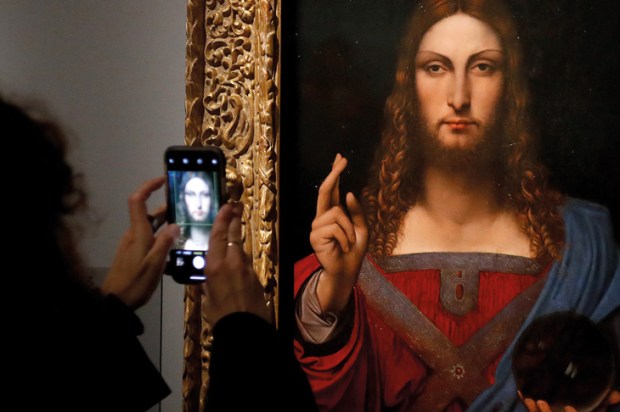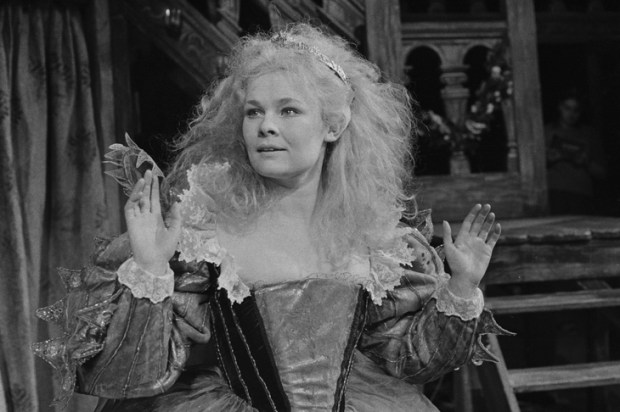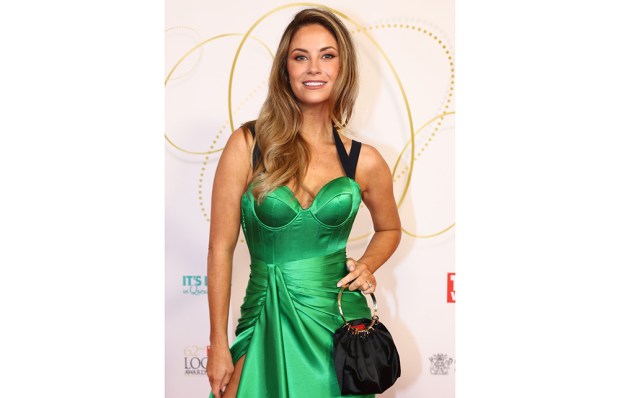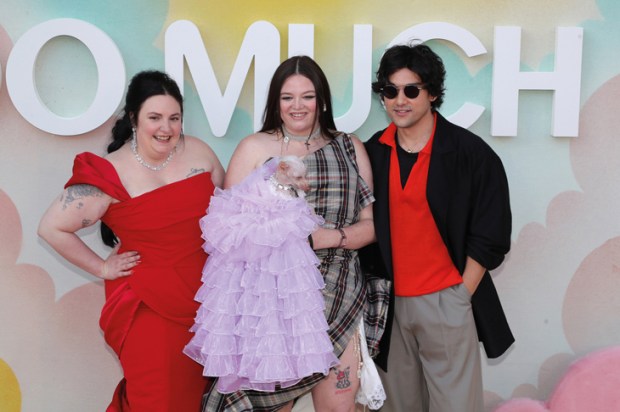How many people have sat watching something stream (or whatever) on television and found themsleves incapable of turning it off because they find it so irresistibly awful? It happened to us recently with The Watcher, the horror show about the evil house created by Ryan Murphy of American Horror Story fame which had Jessica Lange as a cane-wielding sadistic nun and other cheerful bloodsports. Now fifteen or so years ago you could see Jessica Lange give a rather distinguished performance as the mother, Amanda, in Tennessee Williams’ The Glass Menagerie in London’s West End. And The Watcher has a grand collection of superior hands doing the devil’s idle work. Our own Naomi Watts, radiant in glowing white, is married to that honorary Australian Bobby Carnavale (married in real life to the dazzling Rose Byrne with whom he did Simon Stone’s version of Euripides’ Medea and with whom he is scheduled one fine day to do Arthur Miller’s A View from the Bridge). Bobby Carnavale is one of the better actors alive, so is Watts, and they would make captivating leads in practically anything. In The Watcher they are sold the House from Hell by Jennifer Coolidge (fresh from season 2 of White Lotus) and they proceed to run the gamut of ghastliness. They get creepy letters from someone called The Watcher, there are suggestions of murderous blood cults that have taken place where they live, they have Mia Farrow as a neighbour. And the amount of talent poured down the drain of this endlessly proliferating hokum is extraordinary: Noma Dumezweni, the black Englishwoman who won the Olivier for playing the middle-aged Hermione in Harry Potter and the Cursed Child, Margo Martindale as good a Big Momma in Cat on a Hot Tin Roof as any stage has seen.
The trouble with The Watcher is not that it’s hair-raising schlock but that it has a postmodern and ever-expanding narrative preposterousness that keeps getting sillier and sillier. Long before the name Jennifer Lynch appears as a director we’re reminded of that long-ago interminable narrative nightmare of the Nineties, Twin Peaks, which deliberately – and, okay, beguilingly – set up narratalogical development after narratological development to no end term so that the mind reeled at the sheer inventiveness which the great David Lynch, the master of Blue Velvet, could conjure from the idea of the ever-continuing serial. Was Twin Peaks a kind of stoner’s paradise in which the mind delighted in the apprehension that – as Proust says, doesn’t he? – every paradise is a paradise lost at least where plot is exhibited as a runaway absurdity.
Twin Peaks shines in the mind as some kind of glory however much the experience of it may have simulated drugs or breakdown. The Watcher has nothing like the same eloquent derangement and you spend a long time gaping at the silliness though (it has to be admitted) that when all semblance of coherence is thrown away in the last few episodes everything becomes breezier, more Twin Peaks-like and closer to the spirit of comedy. But what a pity Naomi Watts and Bobby Carnavale are not playing a duo of sleuths like the team in Dashiell Hammett’s The Thin Man.
If you want a serious, intelligent bit of TV drama try Dear Edward which centres round a number of people who are in a grief group because their loved ones were killed in a plane crash. At its centre is Edward, the twelve-year-old who has lost his brother and his parents, and who is played with absolute credibility and grace by Colin O’Brien. Last week there was mention of Dean Stockwell who went from being a chld star to playing adult roles like Paul Morel in Sons and Lovers with Trevor Howard and Wendy Hiller. Colin O’Brien is a born actor and every time he says, as he sleeps on the girl next door’s floor, ‘Goodnight, Stupid’ – his catchphrase with his brother – the effect is very moving. Dear Edward also includes in its formidable cast that superb actress Connie Britton who has that uncanny knack of expressing an emotion as she denies it. But Dear Edward is such an imaginative soap that it transcends its genre and it includes a young black woman, Anna Uzele, who wants to succeed her grandmother in politics and who is significantly attracted to a man from Ghana, Idris Debrand, and a priest, Joshua Echebiri. Dear Edward is deliberately filmed with dark filters which is slightly irritating but it consistently touches the heart.
Is that true of the Netflix doco The Murdaugh Murders: A Southern Scandal about a series of deaths in South Carolina? It’s not often that you can actually see the account of a series of killings in near sync with the trial of the accused and in this case it was weird to watch the doco with its set of distraught choric voices at the same time as there was a conviction in the Murdaugh murders. If you somehow missed the verdict watch the documentary first. A young woman is killed on a boat but everything is arranged so that there is no suggestion of responsibility on the part of the young son of the Murdaugh family. Then a gay boy, beautiful and blond, with whom another son may have had a relationship is found dead on a road. A long-time, much-loved servant of the family falls to her death a bit suspiciously. Later the mother and the first son are shot dead. There is talk of oxycontin addiction, there is talk of massive gambling. As the upper-level investigators both journalistic and forensic move in it all comes to seem as plain as day though the mind plays with variables. It’s strange to hear the voices of a world not so removed from our own for all its Southernness in which power of the blatant and deadly kind seems to have prevailed. But the story is sympathetically told and suspense is maintained even when the solution seems grimly manifest. The series is cleanly made and the enunciation grows ever more lucid but if you watch it you will turn to the horror of the court case as well as gaping at what can happen in a country we take our bearings from.
Got something to add? Join the discussion and comment below.
You might disagree with half of it, but you’ll enjoy reading all of it. Try your first month for free, then just $2 a week for the remainder of your first year.













